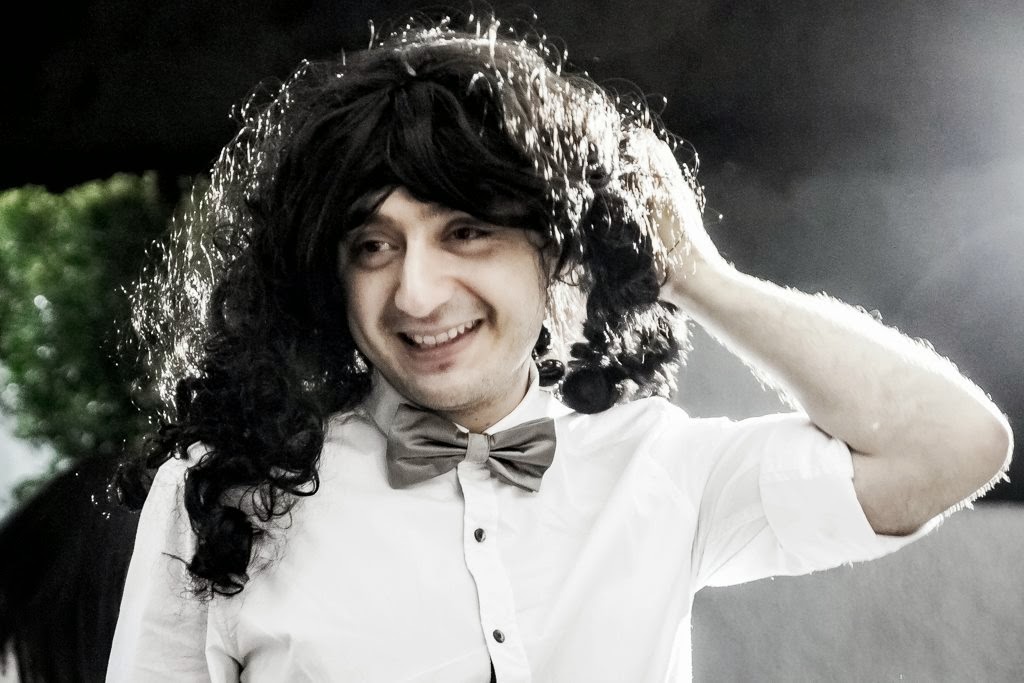Inteligencia Artificial en Oz
En el tercer libro de Oz ("Ozma of Oz"), L. Frank Baum juega (tal vez sin querer) con algunos de los problemas de la Inteligencia Artificial. Obviamente, este no es el tema principal del libro, pero uno de los personajes principales es Tiktok, una máquina capaz de pensar, hablar y caminar; y las situaciones que se viven a su alrededor dan lugar a pensar en la IA.
Una de las primeras escenas que me llamó la atención al respecto es cómo Tiktok, a pesar de que puede hacer todo lo que los otros hacen (y tener muy buenas ideas cuando piensa) resulta "inferior" a los otros, porque no está "vivo" (esto es en particular interesante porque el no temer morir le resulta una ventaja en ocasiones):
"That's all right," replied the Scarecrow. "Dorothy will soon be free, and then she'll attend to your works. But it must be a great misfortune not to be alive. I'm sorry for you."
"Why?" asked Tiktok.
"Because you have no brains, as I have," said the Scarecrow.
"Oh, yes, I have," returned Tiktok. "I am fit-ted with Smith & Tin-ker's Im-proved Com-bi-na-tion Steel Brains. They are what make me think. What sort of brains are you fit-ted with?"
"I don't know," admitted the Scarecrow. "They were given to me by the great Wizard of Oz, and I didn't get a chance to examine them before he put them in. But they work splendidly and my conscience is very active. Have you a conscience?"
"No," said Tiktok.
"And no heart, I suppose?" added the Tin Woodman, who had been listening with interest to this conversation.
"No," said Tiktok.
"Then," continued the Tin Woodman, "I regret to say that you are greatly inferior to my friend the Scarecrow, and to myself. For we are both alive, and he has brains which do not need to be wound up, while I have an excellent heart that is continually beating in my bosom."
"I con-grat-u-late you," replied Tiktok. "I can-not help be-ing your in-fer-i-or for I am a mere ma-chine. When I am wound up I do my du-ty by go-ing just as my ma-chin-er-y is made to go. You have no i-de-a how full of ma-chin-er-y I am."
Pero lo que más me llama la atención son algunos de los problemas morales con las máquinas capaces de tomar decisiones. Este es un tema que debería tratarse seriamente muy pronto, dados los avances en computación, pero que pocas veces he visto que se traigan a colación.
Digamos que BMW produce un coche que se maneja solo (de los que ya han desarrollado prototipos y en ocasiones han aparecido en noticiarios y programas de tecnología). Ahora, la gente compra estos coches y va feliz viajando de un lugar a otro hasta que de pronto hay un accidente. ¿De quién es la culpa? ¿Es culpa de BMW, del que desarrolló el software, del dueño del coche, de la ciudad, o de quién? Esta pregunta no es fácil de responder, y se plantea también en Ozma of Oz después de que Tiktok haya dicho una cosa que al final resultó incorrecta. ¿A quién hay que culpar? Baum va por la puerta fácil diciendo "a nadie; nadie tiene la culpa". Pero, en general, esto no es suficiente.




No hay comentarios.:
Publicar un comentario